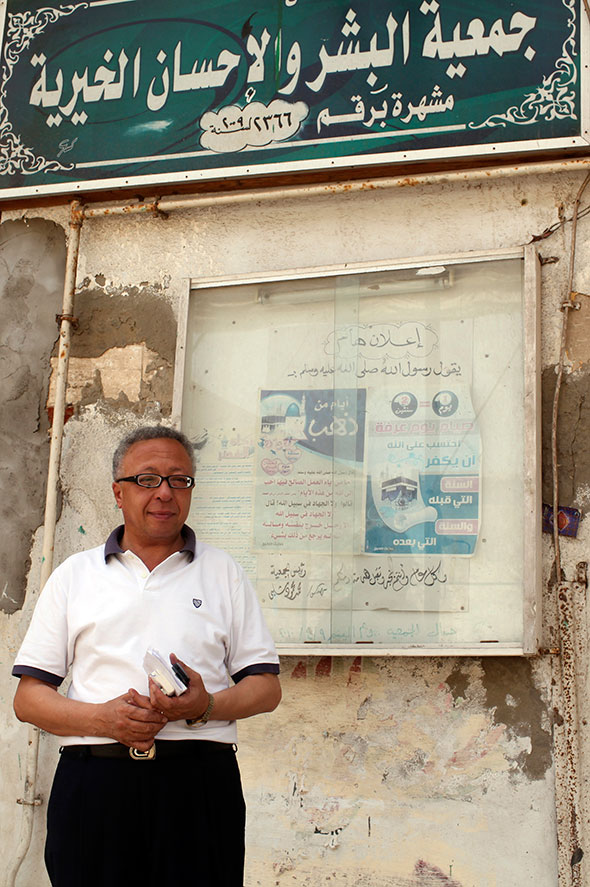The Egyptian government has delayed plans to shut down dozen of rights groups if they refuse to accept restrictive regulations.
Rights defenders had until Tuesday to agree to government interference or face closure. But after a fierce international backlash, the deadline was delayed on Sunday until November.
The temporary reprieve is of scant comfort to the threatened parties, who fear it merely delays the inevitable. Local and international human rights defenders, including Amnesty International, say the ultimatum is the finishing touch to a year-long crackdown on dissent and an attempt to silence Egypt’s remaining opposition voices.

“This is still a declaration of war against the independent human rights organisations,” said Mohamed Zaree, programme director at the Cairo Institute for Human Rights Studies (CIHRS), one of the groups under threat. “The aim of the government is to shut down the public sphere and the horizons that were opened by the revolution in 2011. They want to shut down the last voices calling for accountability for human rights violations, and the last critics of the narrative the government puts forward about Egypt to the international community.”
Since 2002, non-governmental organisations (NGOs) in Egypt have been regulated by a law that gives the government the right to oversee and veto each project that an NGO carries out, and to block any overseas donation or grant. Critics say the law exists to obstruct the work of rights groups, whose work is often unfavourable to the government, and which are largely funded by international organisations. To circumvent the legislation, many would-be NGOs register as law firms or research groups, to give themselves more freedom.
Death sentence for NGOs
In July, the government moved to end the loophole and ordered groups whose work was in any way connected to NGO-type activity to re-register under the 2002 law within 45 days.
“The looming deadline sounds very much like a death sentence for independent Egyptian NGOs,” said Hassiba Hadj Sahraoui, Amnesty’s deputy director for the Middle East and north Africa, in a statement. “The authorities’ ultimatum is not about enabling NGOs to operate, and instead paves the way for the closure of those that are critical of the government.”
The Egyptian government denies it is trying to curb dissent, and says it is trying to end a legal ambiguity. “This doesn’t have anything to do with [cracking down on] the opposition,” said Ayman Abdelmawgud, from the ministry for social solidarity, the state body that issued the order. “Any entity practising the work of NGOs should be registered as one. I don’t know why they have concerns about registering.”
But the rights groups say their concerns are obvious: by registering under the 2002 law, they are submitting to the whim of a ministry that could freeze their programmes, or reject their application.
The Egyptian Commission for Rights and Freedoms (ECRF) is one group that has already applied to re-register. But its executive director, Mohamed Lotfy, fears the ministry will unnecessarily prolong its assessment of the ECRF’s application, and ban it from working in the interim period. “They could actually come and stop our activities and say that we’re doing work that should be monitored by the ministry, and therefore we should stop working until our application is processed,” said Lotfy. “That’s a real threat.”
Once the deadline finally passes, some threatened groups may ask their employees to work from home, fearing a repeat of the raids on NGO offices that took place in December 2011. Those raids resulted in the arrest and conviction of 43 democracy advocates, and were the start of a counter-revolutionary attempt to undermine an emergent civil society that had been strengthened by the 2011 uprising that toppled former dictator Hosni Mubarak.
Restrictive law
The election of the Muslim Brotherhood in 2012 did little to stem the tide, as the group attempted to force through a new NGO law that was even more restrictive than the 2002 version. The Brotherhood’s efforts were thwarted by their overthrow last summer, but their military-installed successors have continued along a similar track, drafting yet another harsh NGO law that could be enacted as soon as a new parliament is elected.
Rights groups are the last significant source of opposition to the current government, which has muted dissent by banning street protests, arresting journalists killing more than a thousand protesters, and jailing tens of thousands of political prisoners.
“The only people exposing the violations right now in Egypt are the rights organisations,” said Mohamed Zaree, the CIHRS campaigner. “And the government does not welcome that criticism.” – Patrick Kingsley for The Guardian
